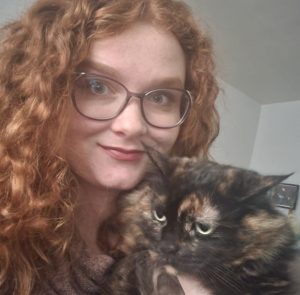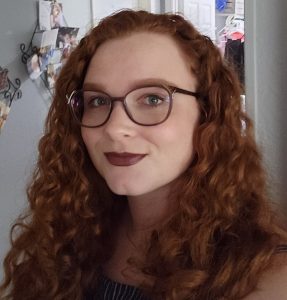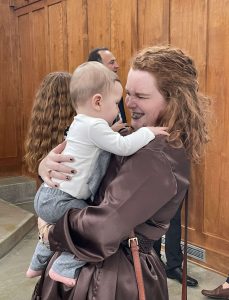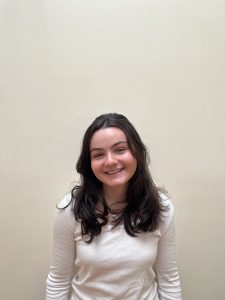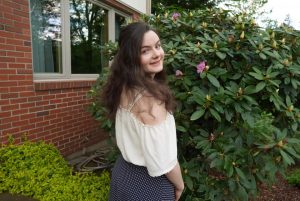
Katelyn J. Pitcher, M.S., is a graduate student for Rhiannon Smith in the Social Development Lab
She is currently working on the “Expected Classroom Treatment” study (protocol # H21-0086) with Rhiannon Smith and Kim Chaney. In this study, they are investigating how children perceive teachers’ behavior towards their fellow students and how they expect to be treated in the classroom environment. The study is carried out online and can be accessed via this website.
Katelyn is currently a third year graduate student in the developmental psychology program here at UCONN and is being advised by Dr. Rhiannon Smith. She attended undergrad at Hendrix College, a small liberal arts college in Arkansas.
Katelyn has two primary research interests: bias development and group awareness in children, and identity development and wellbeing in sexual minority youth. Her current research is concentrating on the former topic; she is very interested in when children become aware of group membership and how to combat stereotype and bias development in childhood. Additionally, she is interested in how children’s race and gender impact their awareness and perception of group differences. She would also like to continue her work on sexual minority youth, especially asexual youth, who are a very understudied group. In Katelyn’s free time, her favorite hobbies are crafting of any kind. She can knit, crochet, sew, cross-stitch, and recently has tried to pick up lace tatting.
Katelyn’s favorite TV show is currently Avatar the Last Airbender, which has been a favorite of hers since she watched it as it came out when she was in elementary school. She had rewatched it with friends during quarantine and loved its humor as well as its excellent story-telling and characters.
